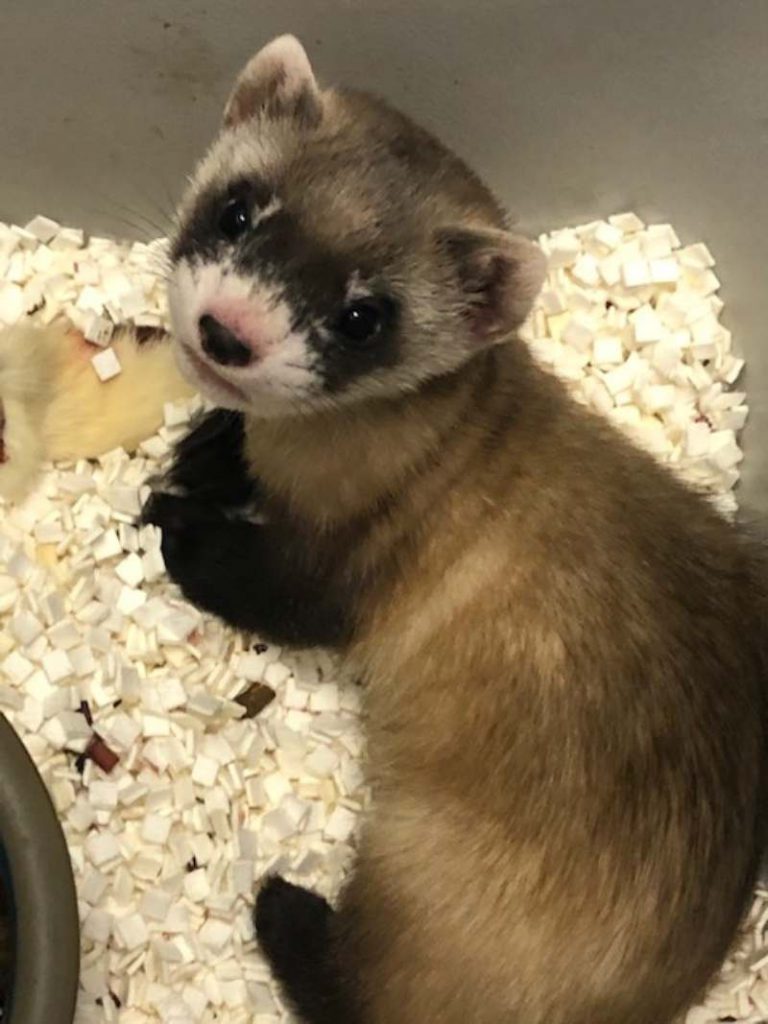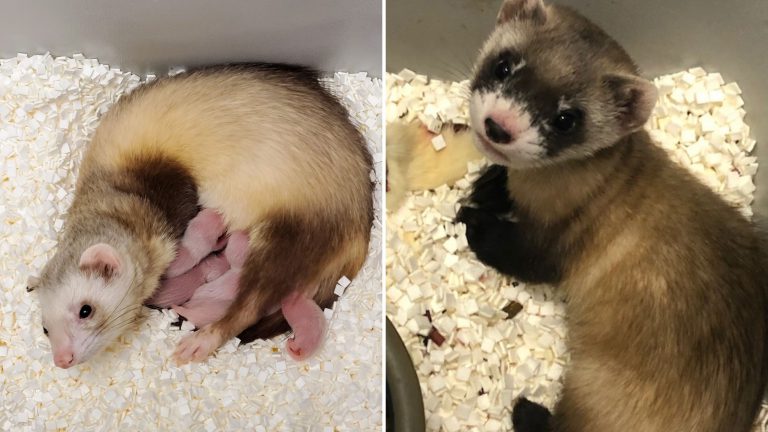Scientists have cloned the first U.S. endangered species, a black-footed ferret duplicated from the genes of an animal that died over 30 years ago.
This adorable ferret is named Elizabeth Ann and was made from the cells of Willa. She died in 1988 and scientists froze her body to preserve her genetic material, hoping to someday perform an experiment like this.
She was born to a surrogate mother in December, and scientists hope she will eventually be able to mate and help rescue the species from the brink of extinction.
“You might have been handling a black-footed ferret kit and then they try to take your finger off the next day,” U.S. Fish and Wildlife Service black-footed ferret recovery coordinator Pete Gober. “She’s holding her own.”

Elizabeth Ann was born and is being raised at a Fish and Wildlife Service black-footed ferret breeding facility in Fort Collins, Colorado.
“Biotechnology and genomic data can really make a difference on the ground with conservation efforts,” said Ben Novak, lead scientist with Revive & Restore, a biotechnology-focused conservation nonprofit that coordinated the ferret and horse clonings.
Black-footed ferrets are one of North America’s most endangered species. They were declared extinct in 1979, but a Wyoming rancher discovered a small population living on his land two years later and that group formed the start of a breeding program.
All black-footed ferrets that are alive today are descended from just seven individuals which present unique genetic challenges to recovering the species.
When Willa died, the Wyoming Game and Fish Department sent her tissues to a “frozen zoo” run by San Diego Zoo Global that maintains cells from more than 1,100 species and subspecies worldwide.
“With these cloning techniques, you can basically freeze time and regenerate those cells,” Gober said. “We’re far from it now as far as tinkering with the genome to confer any genetic resistance, but that’s a possibility in the future.”
Elizabeth Ann and future clones of Willa will form a new line of black-footed ferrets that will remain in Fort Collins for study. There currently are no plans to release them into the wild.
What are your thoughts?
Related Articles:
Belgian Photographer Captures An Extremely Rare Yellow Penguin
This Harpy Eagle Is So Big, It Looks Like A Human In A Bird Costume



